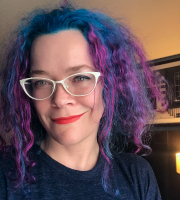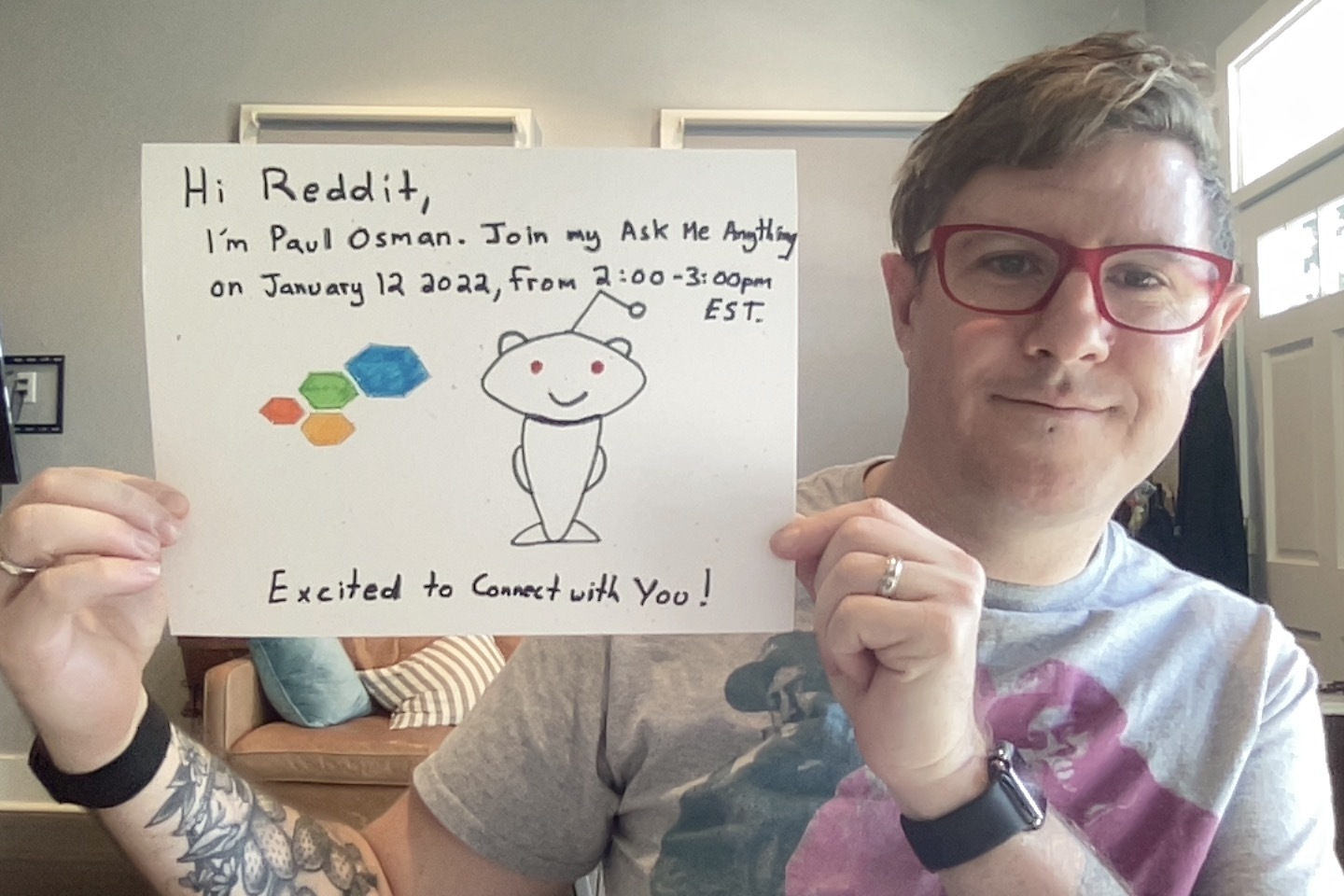We are delighted to share the news that the bees at Honeycomb have voted, and Staff Engineer, Paul Osman, is our first ever employee representative on our board of directors!
Paul will function just like any other member of the board. He will attend board calls and meetings, will receive board-level communications, and—most importantly—he will have a vote. Honeycomb employees literally have a seat at the table through Paul.
Every year, an employee representative will be elected by their peers (any employee in good standing who has been working here for more than 6 months may vote) and will serve a one-year term. Anyone who has been here for more than two years is eligible to run, and all candidates are asked to write a short piece on what it means to them and why they’re interested.
You can read Paul’s full statement below, but I think this part encapsulates the spirit of what we’re trying to do:
I think we’re fortunate at Honeycomb to have founders and an exec team who many of us trust. That trust is based on decisions like the one to put an employee on the board. Putting an employee on the board embeds representation into our organizational structure; if done right, it will lead to increased trust, transparency and a sense of cooperation between executives and workers.
Why did we decide to do this? Great question!
Firstly, this is an experiment. After all, in corporate law (as in distributed systems), you should avoid innovating as much as possible; and it’s true, I don’t know of any other U.S. companies that have done this. Which means we are spending a pretty big innovation token on it. Why is that?
- First of all, we are a talent business, which is a fancy way of saying that our success is directly correlated with our ability to attract, retain, and cultivate incredible people. We are widely recognized for punching far above our weight when it comes to hiring, but in a white-hot job market, our ability to achieve our goals will depend on whether we can continue to be a magnet for great hires.
- People who come and work here often say they were drawn to us because of the ways that we are vocally, visibly outside the norm, from the diversity of our teams to the way we interview to our on-call philosophy. Which is why we feel not only justified, but obliged, to continue innovating in these matters. We hope this experiment will reach more of the kinds of people we want to hire, and they will want to work here.
- We want to maintain both our reputation and reality that transparency, ethics, and morals are valued here, and that great decisions are not just the provenance of an elite few.
- Employees bring perspective that execs might not have, especially as an organization grows and becomes less flat. Just like we build systems to handle an order of magnitude growth, we are investing the same way in our organization. As the company grows and the stakes get higher, it will get harder and harder for us to conduct experiments like this.
- And finally, most importantly … employees are part-owners who deserve representation. Honeycomb only exists because of the people who show up every day and create it with their care, their creativity, and their labor. I believe we will make better decisions with employee representation at the board level as we grow, just like I believe employees deserve representation. A board seat is one possible way to do that.
Importantly, please note that we do not expect Paul to behave like a partisan for employee interests. While every representative on the board has a natural constituency, the board of directors is expected to act on behalf of the entire company, exercising their best judgment towards the success of the company as a whole.
For us, we see putting an employee on our board as a sign of our commitment to meaningful employee input at the very top. We also see it as a way of creating structure beyond Christine and me as founders. This is a durable way to ensure representation of the company’s interests that isn’t dependent on any individual people. Who knows, maybe it will spark a trend! After all, the idea of giving employees stock options was considered unthinkable not so long ago.
Like I said, this is an experiment, which will run for one year. One of our core values is “everything is an experiment” (EIAE for short), and in that spirit, the board will vote on whether or not to continue the experiment after one year has passed.
If you have any questions, Paul and I are going to be doing a Reddit AMA on Thursday, January 12, from 2 p.m. – 3 p.m. EST. We’re happy to discuss every single detail of the process, from how we conducted the voting process, to what we hope to gain from this experiment, etc. Come and join us and bring your curiosity!
Yours in representation,
Charity
[1] in Germany, it’s a different story
Paul’s full statement:
“Honeycomb is the best team I’ve been a part of, and our ability to attract and retain great people is a critical part of that. When I interviewed, I said that I wanted to work with ridiculously kind and intimidatingly smart people. I’m proud to be here and I’m honored and humbled to be nominated for a position on the board!
I’ve worked at startups, public companies, and one non-profit. I’ve seen what happens when a board loses touch with employees and I’ve felt the sting of distrust and helplessness when things seem to be moving in the wrong direction. But, on the other hand, I’ve also seen what happens when a board helps steer a company in the right direction. I’ve seen founders and CEOs step down or be fired, and I’ve seen companies grow and thrive under steady leadership.
I think we’re fortunate at Honeycomb to have founders and an exec team who many of us trust. That trust is based on decisions like the one to put an employee on the board. Putting an employee on the board embeds representation into our organizational structure; if done right, it will lead to increased trust, transparency and a sense of cooperation between executives and workers.
My experience as both a manager and an individual contributor provides me with helpful tools for sponsorship and advocacy. I’ve worked in positions that required me to be a public voice for a company, speaking to media and at conferences, so I know that I can handle confidential information appropriately.
As a manager at previous companies, I helped revamp interview processes to be more humane, representative and inclusive. I also identified pay equity issues and worked with senior executives to transparently remedy disparity in salary bands across the board, resulting in comp improvements for dozens of employees. When I know something is wrong, I try to shine a light on it and work with others to improve it.
As an individual contributor at Honeycomb, I have an in-the-trenches perspective that I will bring to board discussions. I’ve always been a big believer in trusting people closest to the knives, and I think I’m in a great position to represent what it is like to work at a fast growing company in a competitive market.
I try to be honest and direct in my communication. I’ve had the good fortune to work with people on various teams here at Honeycomb, and I look forward to getting to know more of you. If I am elected as our employee board representative, I will represent you in all discussions and decisions made by the board. I will make myself available to listen and understand priorities and concerns, and I will diligently present information from board meetings whenever possible.
Charity has said that Honeycomb is not a democracy, and while I agree, I don’t think that democracy is an all-or-nothing idea. We all have input and should seek to strengthen democratic structures wherever possible. I believe that having an employee on the board is a democratic function and if you choose me, I will endeavor to treat it that way. I will take this very seriously, and I will work to represent you to the best of my abilities.“












